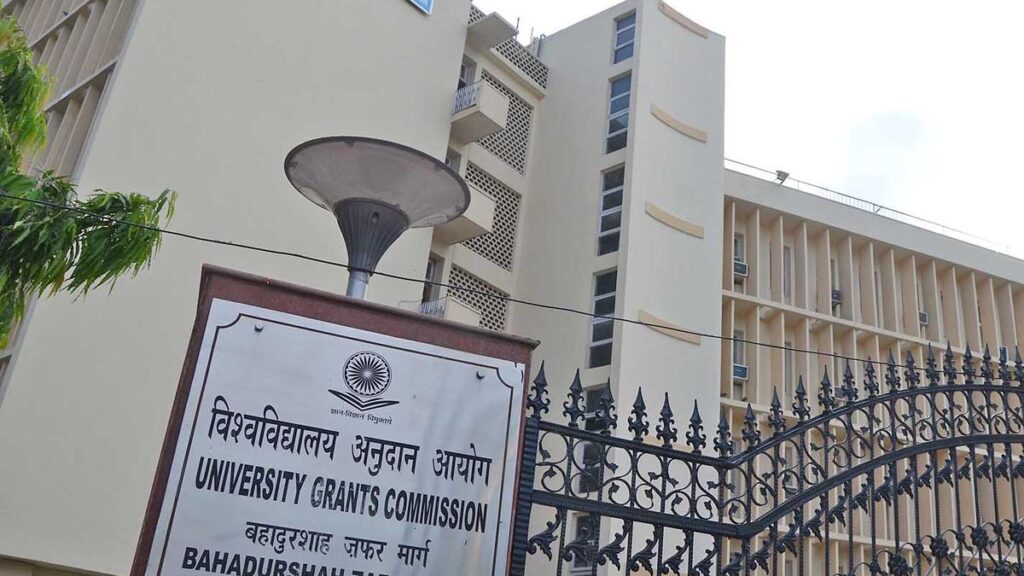
A view of the University Grants Commission (UGC), in New Delhi.
| Photo Credit: SUSHIL KUMAR VERMA
The story so far: The University Grants Commission (UGC) decided to discontinue the UGC Consortium for Academic and Research Ethics (UGC-CARE) list, which is a list of quality academic journals, first introduced in 2018. The UGC-CARE list will now be replaced by a set of suggestive parameters for choosing journals based on eight criteria. Stakeholders can submit suggestions by February 25.
What do the new parameters say?
There are about 36 suggestive parameters under eight criteria in the draft notification titled “Suggestive Parameters for Peer-Reviewed Journals.” Under the journal preliminary criteria, the UGC has asked teachers to note the journal title, the international standard serial number, periodicity and continuity and transparency review policy etc before sending an article for publication. Under the editorial board criteria, the UGC wants authors to ensure that the journal’s editorial board details and editorial board composition are made available. Similarly other criteria under suggestive parameters include journal editorial policy, journal standards, journal visibility and research ethics.
Why did the UGC withdraw it?
The aim of the UGC-CARE listing was to ensure that only “reputable” journals are recognised for faculty selections, promotions, and research funding applications. According to UGC Chairman M Jagadesh Kumar, the UGC-CARE list faced several criticisms, including over-centralisation in deciding what constitutes high-quality research and journals, and unnecessary delays in including or excluding journals from the list. Academics had also raised concerns that in certain fields, such as Tamil, the availability of research journals were limited as per the UGC CARE list. Mr. Kumar said there was lack of transparency in the decision-making process and highly respected journals published in Indian languages were excluded from the list.
Furthermore, the UGC claims that the new approach will help in combating predatory journals and decentralise the mechanism of choosing academic journals. Higher education institutions will “now be responsible for establishing credible mechanisms to evaluate journals and ensure they meet high ethical and scholarly standards.” They can develop their own institutional mechanisms for evaluating the quality of publications and journals. “These mechanisms should align with established academic norms and indicative parameters suggested by the UGC. This decentralised approach allows HEIs to tailor their evaluation processes to suit their specific needs,” Mr. Kumar said in a statement. Institutions can now create evaluation models that consider the unique characteristics of different disciplines, and accommodate newer, evolving fields.
What has been the response?
Students and academics have voiced their concerns on the latest move. Their main worry is that the decision will result in the mushrooming of low-quality journals. The Central Executive Committee of the Students’ Federation of India (SFI) condemned the UGC’s move, which they said was taken without adequate consultation with student and research communities. The SFI termed the decision as a serious setback to academic integrity and quality research in India. The SFI added that the UGC’s decision is part of a broader pattern of deregulation in higher education under the National Education Policy (NEP) 2020. “While decentralisation is essential for academic freedom, the lack of a central oversight mechanism could lead to arbitrary and inconsistent journal evaluation processes across institutions,” it said.
Published – February 24, 2025 08:30 am IST
Source:https://www.thehindu.com/news/national/why-has-the-ugc-care-list-of-journals-been-discontinued-explained/article69255837.ece

